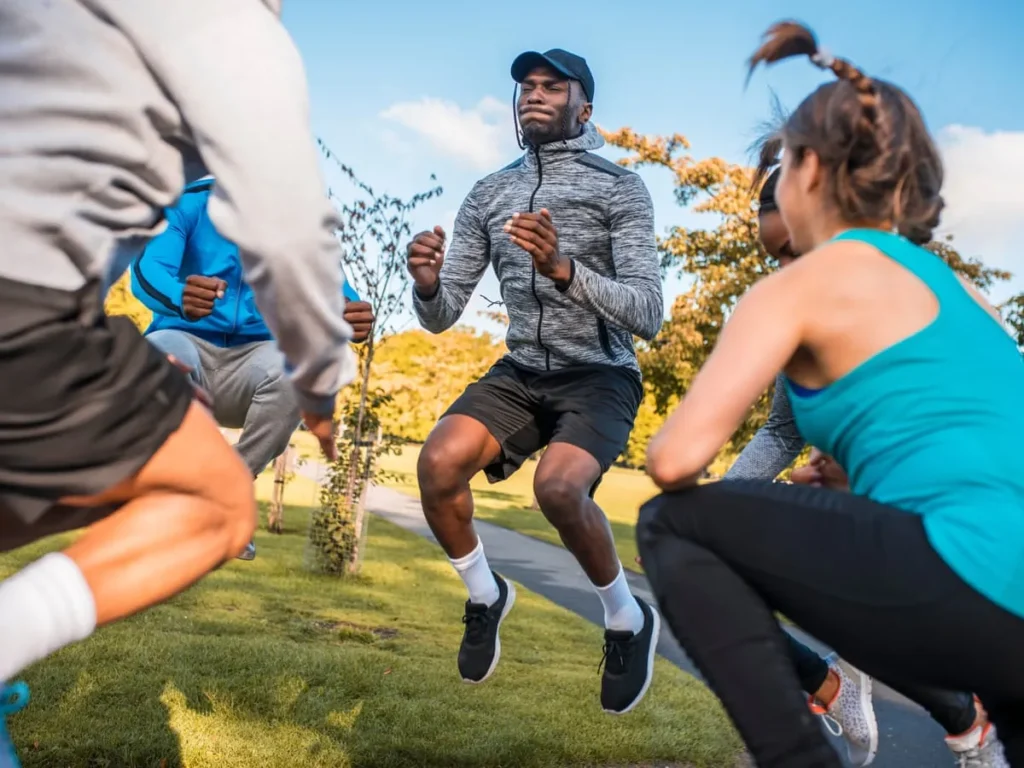In recent years, the importance of mental health has gained significant recognition. As people continue to navigate the challenges of modern life, finding effective ways to sports reduce stress and keep anxiety and depression manage mental well-being has become a priority. One avenue that has emerged as a powerful tool in this regard is sports. Engaging in sports and physical activities not only promotes physical fitness but also offers numerous benefits for mental health. We often have come across the question how sports affect mental health, but not anymore. In this blog, we will explore how sports help mental health and delve into How sports help mental health various ways in which participation in sports can positively impact our overall well-being.

Game On for Mental Health: How Sports Can Improve Your Well-Being
Welcome to the exciting world of how sports can transform your well-being! In this journey,Boost Your Mood we’ll explore the incredible connection between physical activity and mental health, revealing how playing games and participating in sports can lead to a happier, healthier you. Get ready to discover the game-changing benefits that a love for sports can bring to your overall well-being.
Physical Exercise and Mental Health
One of the primary ways which supports how sports help mental health is the contribution of sports to the human body in the form of physical exercise. Engaging in regular physical activity has been proven to have a profound Sport improves your concentration impact on our mental well-being. Exercise releases endorphins, the body’s natural mood-enhancing chemicals, which can help reduce symptoms of anxiety and depression. Moreover, physical activity stimulates the production of neurotransmitters like serotonin and dopamine, which play key roles in regulating mood and emotions.
Participating in sports also offers a valuable opportunity for stress relief. Engaging in physical activity helps to reduce stress hormones like cortisol while increasing the production of feel-good hormones. This leads to a sense of relaxation and sports help mental health can alleviate symptoms of chronic stress and tension. Additionally, sports provide a healthy outlet for managing anger, frustration, and other negative emotions, allowing individuals to channel their energy into constructive activity.
Social Interaction and Connection
Sports offer a unique platform for social interaction and connection, which can significantly impact mental health and sports reduce stress and keep anxiety and depression . Whether playing on a team or engaging in individual sports, participation fosters a sense of belonging and community. The camaraderie and support from teammates and fellow sports enthusiasts create a positive environment that promotes social connection and helps combat feelings of loneliness and isolation.
Furthermore, sports provide opportunities for building relationships and developing interpersonal skills. Team sports, in particular, teach valuable lessons in teamwork, cooperation, and communication. These skills are transferable to various aspects of life and can improve overall social competence and self-confidence.
Boosting Self-Esteem and Confidence for mental health
Participating in sports can have a significant impact on self-esteem and confidence. Engaging in physical activities helps individuals develop a sense of mastery and achievement as they progress in their skills and abilities. Accomplishing personal goals and Sport improves your concentration experiencing improvement in performance can boost self-confidence and foster a positive self-image.
Additionally, sports provide opportunities for setting and achieving realistic goals, which can enhance self-esteem. Overcoming challenges, dealing with setbacks, and learning from failures are all valuable life lessons that sports can teach. Through perseverance and determination, individuals develop resilience and a belief in their ability to overcome obstacles not onlyBoost Your Mood in sports but also in other areas of life.

Cognitive Benefits of mental health
Engaging in sports not only benefits physical and mental health but also has positive effects on cognitive function. Regular physical activity has been linked to improved memory, enhanced focus, and increased creativity. Exercise increases blood flow to the brain, delivering essential nutrients and oxygen that support brain health and cognitive processes. How sports help mental health Moreover, sports require strategic thinking, problem-solving, and quick decision-making, which stimulate mental agility and improve cognitive abilities.
Stress Reduction and Mental Resilience
Every sports player at some point in their life has interacted with the term mental health and sports benefitting it. How sports help mental health can’t be better experienced than them. Participating in sports can help individuals build mental resilience and better cope with stress. Sports provide a structured and disciplined environment that sports reduce stress and keep anxiety and depression promotes self-discipline and time management skills. Engaging in regular physical activity helps individuals learn to handle pressure, manage their emotions, and stay focused even in challenging situations. These skills can be applied to everyday life, enabling individuals to navigate stressors more effectively and maintain a balanced mental state.
Improved Sleep Patterns for mental health
How sports help mental health has stated many proven points to address the query. Sports and physical activity have been shown to improve sleep patterns and Sports help you manage stress which are essential for overall mental health. Regular exercise helps regulate sleep-wake cycles, promoting better quality sleep. Physical activity reduces anxiety and restlessness, allowing individuals to fall asleep faster and experience deeper, more restorative sleep. Adequate sleep contributes to improved mood, cognitive function, and overall mental well-being.
Enhanced Body Image and Self-Acceptance
Participating in sports can positively influence body image and sports help mental health promote self-acceptance. Engaging in physical activity can improve body composition, increase muscle tone, and enhance overall physical appearance. This can lead to improved body satisfaction and a more positive self-image. Moreover, the focus on performance and skill development in sports shifts the emphasis from appearance to functionality,How sports help mental health allowing individuals to appreciate their bodies for what they can do rather than how they look. This shift in perspective can contribute to greater self-acceptance and improved body image.
Conclusion
In conclusion, how sports help mental health shouldn’t have been a question. The impact of sports on mental health cannot be understated. how sports help mental health Engaging in sports and physical activities offers a holistic approach to well-being, addressing physical, mental, and emotional aspects of our lives. From the release of endorphins through physical exercise to the social interaction and connection found in team sports, and from the cognitive benefits to stress reduction and improved sleep patterns, sports provide a powerful tool for enhancing mental health.
By participating in sports, individuals can experience increased self-esteem, confidence, and How sports help mental health resilience. They learn valuable life lessons such as goal-setting, teamwork, and perseverance, which extend beyond the sports field and positively impact their overall quality of life.
It is crucial for individuals to recognize how sports affect mental health as it holds immense benefits over it and to prioritize incorporating physical activities into their routines. Whether it’s joining a local sports club, engaging in recreational activities, or simply making time for regular exercise, the key is finding activities that bring joy, promote physical fitness, and nourish the mind.
Let us embrace the power of sports and unlock the potential for improved mental well-being, leading to happier and healthier lives. We hope that as we are winding up this blog, how sports help mental health must have been stated briefly


One Comment
[…] have a profound impact on individuals’ mental health, providing both physical and psychological benefits. Athletes, in particular, have a unique […]